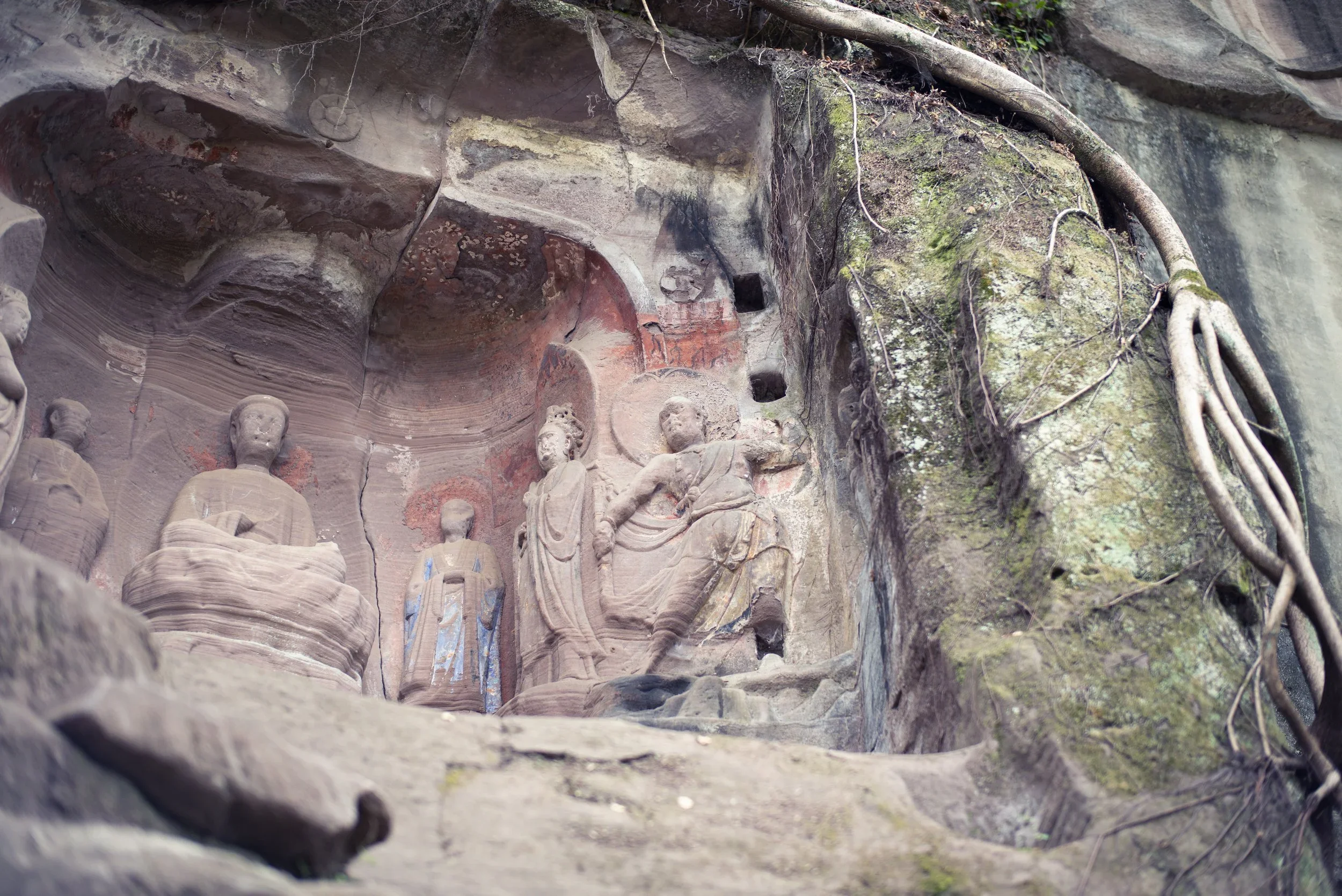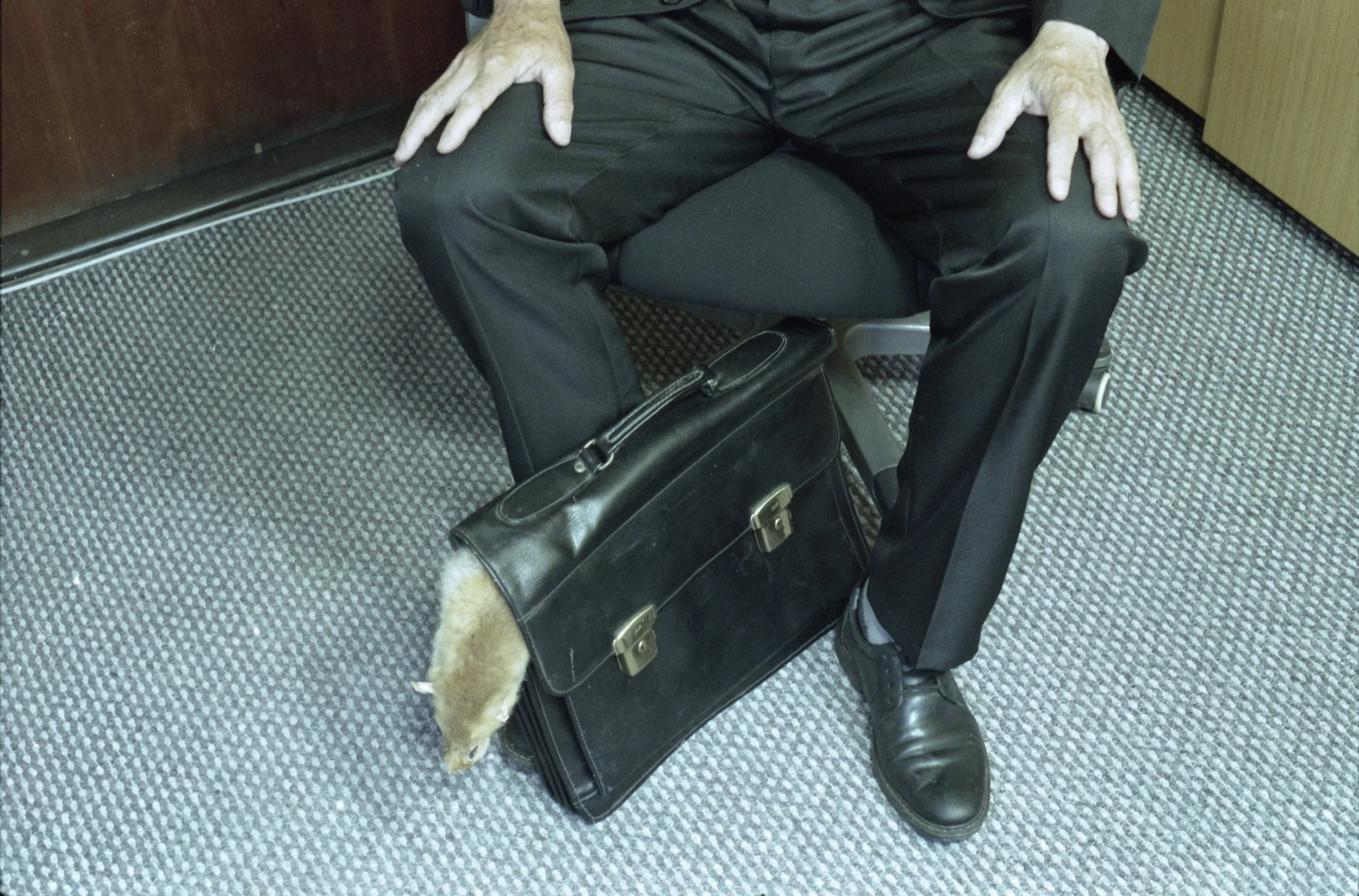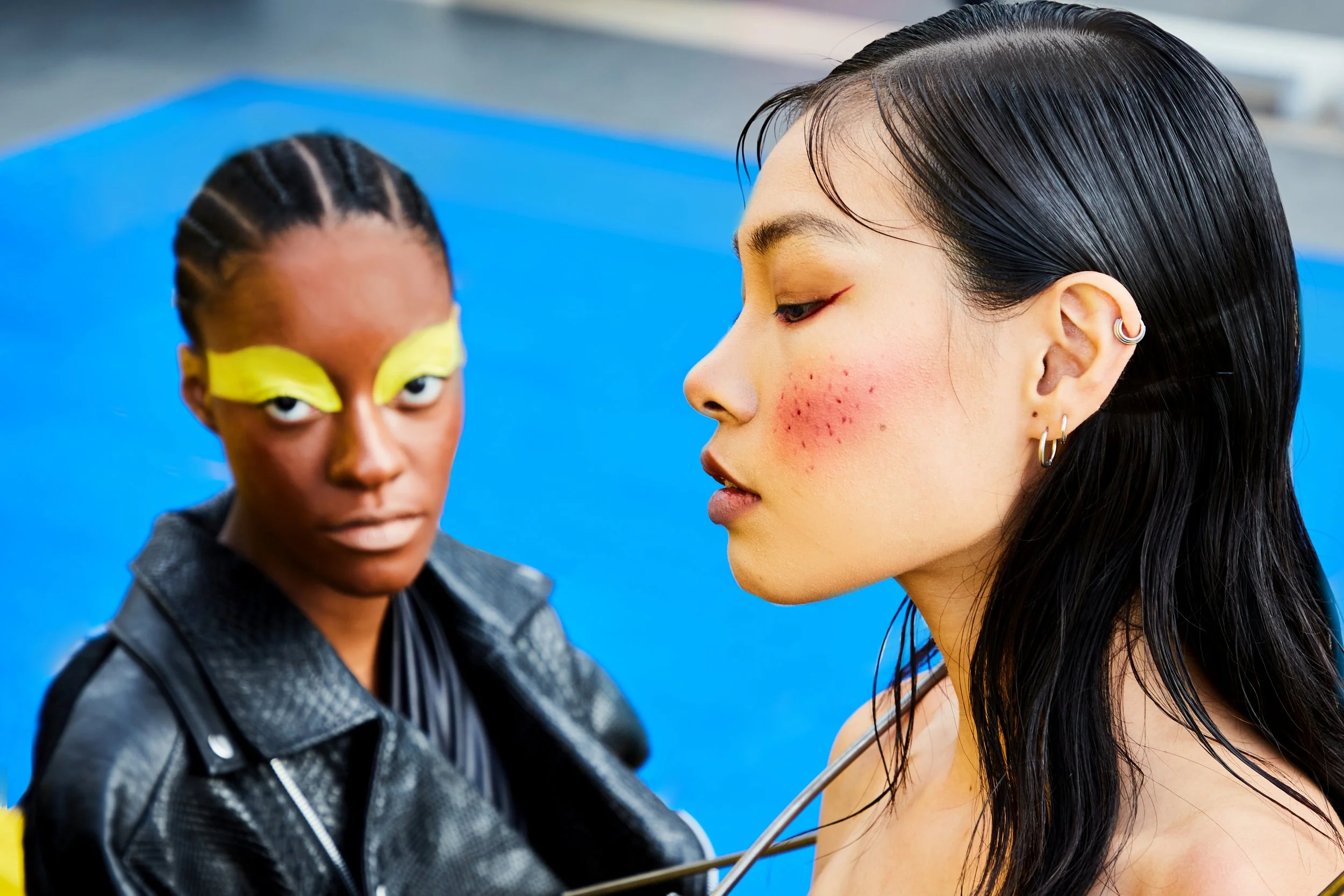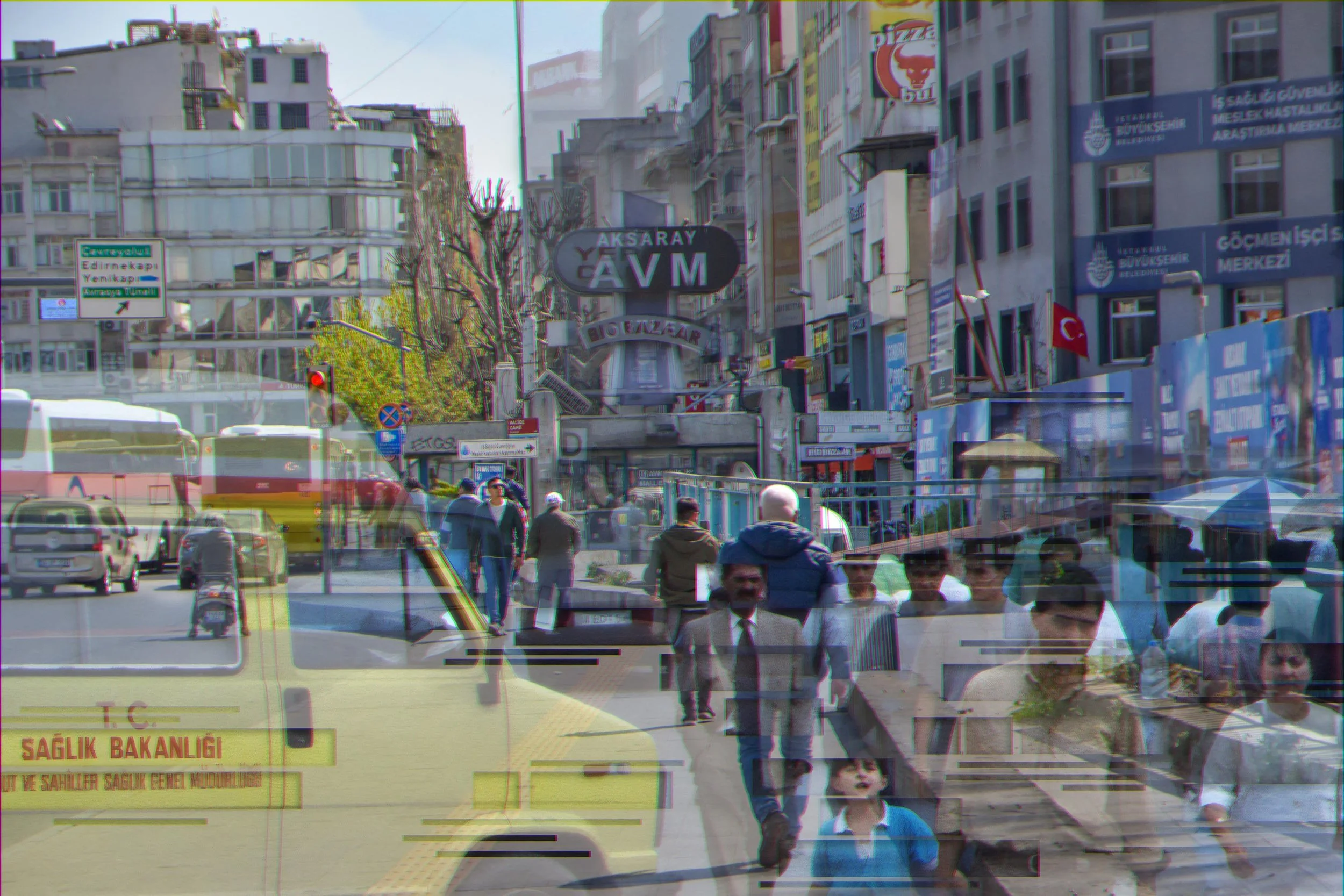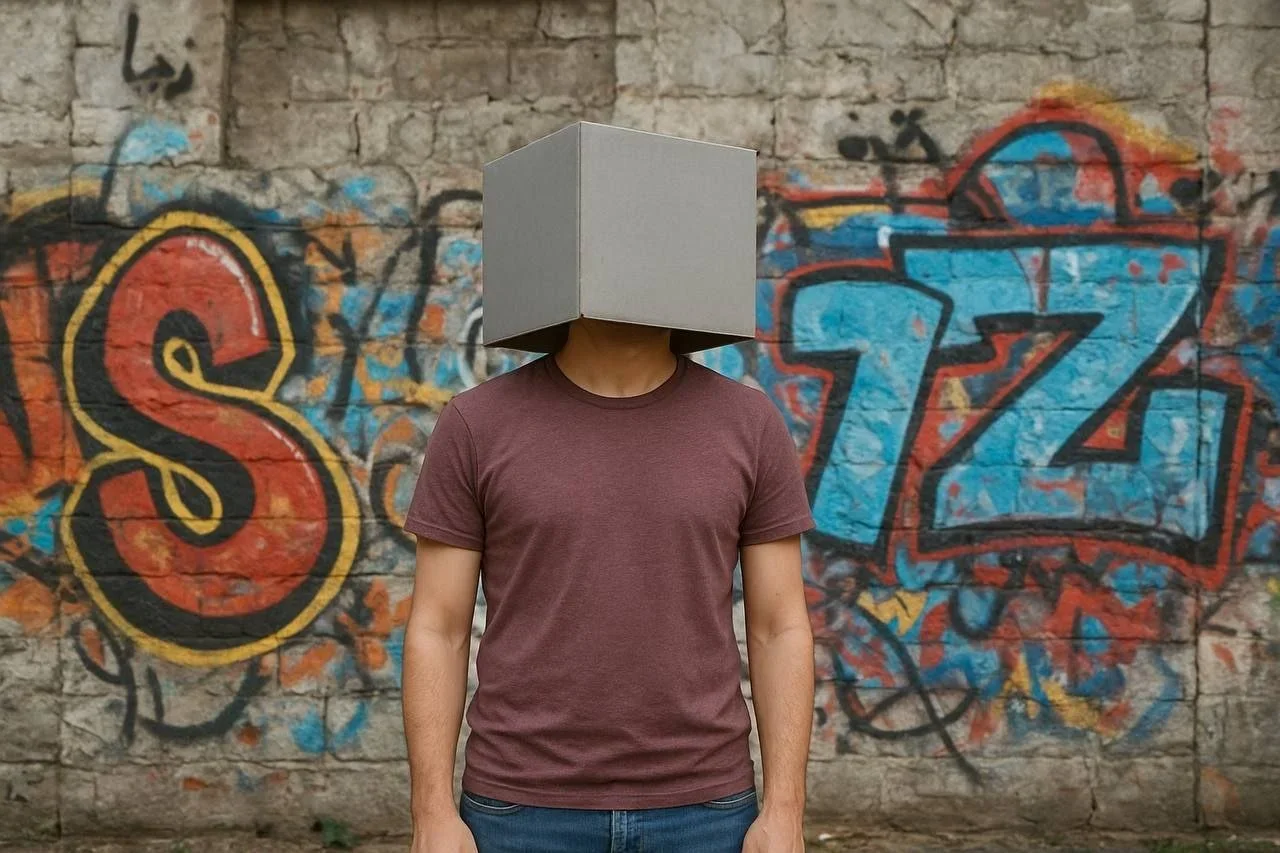10 Questions with Nicole Tran
Nicole Tran is an artist who uses photography and filmmaking to build her signature bold visuals. Originally from Seattle, Washington, she lived in Spain and Croatia before relocating to London, England, to pursue Fashion Photography at the London College of Fashion. Nicole's artistic journey began as a muralist in the realm of fine art, but her fascination with photography was sparked after discovering her father's decade-old camera. As her photographic journey evolved, she expanded her repertoire to include filmmaking. Currently, Nicole is immersed in London's music and fashion scene, where she directs music videos, photographs album covers, and crafts visuals for the fashion industry.
Nicole Tran - Portrait
ARTIST STATEMENT
Her background in fine art is imbued into her photography, evident in her use of color theory and matte textures. Nicole builds a visual universe for the viewer to step into, developing character identities that are translated through styling and posing. She incorporates elements of storytelling to represent not only her own ideas but the ideas of others. Her passion and joy stems from understanding the stories of other artists, such as designers and musicians, and developing them visually for a wider audience. Nicole uses multimedia to create otherworldly atmospheres through the interweaving of vivid and immersive set design, hair, makeup, styling, and lighting.
Frill, Photo, 2024 © Nicole Tran
INTERVIEW
What initially drew you to the world of photography and filmmaking, and how did your journey evolve from muralist to multimedia artist?
My journey into photography was quite accidental. When I was 15, I found my dad's decade-old camera in a closet. I needed to save money to move to Barcelona, so I began taking photos as a side job. I initially started with portraits, but as I delved into the creative aspects of fashion photography, I fell in love with the art of world-building. It perfectly combined my passions for creativity and business, as well as offering me the flexibility to travel and meet new people. Filmmaking naturally followed when artists I shot album covers for started requesting music videos. My background as a muralist blended into my photography style since I frequently painted backdrops or built props for my shoots.
Overall, what is your artistic background, and how did you develop your style?
I have always been involved in art, starting with silly little drawings and crafts as a kid. As I got older, I focused on oil painting and charcoal drawings, both of which now heavily influence my approach to color and composition. My photography style developed through a lot of trial and error. I took photos at every opportunity and experimented with many different styles. With each attempt, I noted what I liked and disliked, gradually refining my core style. My artistic style has also evolved alongside my personal taste. The deeper I understand myself and my preferences, the more it's reflected in my work.
Amuse, Photo, 2024 © Nicole Tran
What inspires your artistic vision, and where do you draw inspiration for your projects?
As a kid, I've always constructed a visual world in my mind alongside experiencing the physical one. This continuous stream of imagery is what fuels my artistic vision. For me, creating is like breathing—I couldn't function without it. I've expanded my storytelling to depict others' ideas, and I love the duality of creating my own narratives while also portraying the ideas of others. To bring these concepts to life, I draw visual inspiration from a myriad of sources, such as architecture, film color grading, vintage ads, and paintings.
Can you describe your creative process when conceptualizing and executing a new project, from ideation to completion?
My creative process usually begins with the story I want to tell, whether it be conceptual or visual. I start by brainstorming ideas through visual mood boards and then plan the logistics of the shoot. The preproduction phase can extend up to a month, fine-tuning every detail of the shoot, including the most important part—building the team. My favorite part is always the day of the photoshoot. I'm often tethered to my laptop, so I cherish every opportunity to be hands-on and work alongside others. Post-production is consistently the most demanding phase because countless are spent on color grading, skin retouching, and more. I typically explore new cafes to do my editing in, adding an element of fun to the otherwise tedious process.
How do you approach the interplay between different artistic elements in your work, and how do you use them to create your bold style?
I approach the interplay of artistic elements by carefully considering how each component—such as hair, makeup, styling, set design, posing, and color palette—contributes to the overall narrative. By balancing these elements thoughtfully, I use them to create a bold style that stands out but is not overwhelming.
Our Nature Isn’t Human, Photo, 2024 © Nicole Tran
Trilobite, Photo, 2024 © Nicole Tran
Could you share a specific project or series that holds particular significance to you and explain the story behind it?
"To the 70s" was truly special for me as it marked a pivotal point in my career. I transitioned from photographing in a garage in my small hometown to producing a large set in London. Previously, I handled everything myself—acting as the makeup artist and stylist—but this project introduced me to the magic of collaborating with other artists. It was the first project where I felt like I was able to go all out and wasn't limited by the resources around me. From here, all my wildest ideas felt possible.
Can you discuss any challenges you've faced as an artist and how you've overcome them?
Accepting that I wanted to be an artist was difficult. My biggest challenge was mustering the courage to live honestly with myself despite being looked down on for not pursuing a more "respectable" career. The beginning was tough since I had to navigate it alone and learn to be my own cheerleader. It tested how badly I wanted this because everything felt like an uphill battle. Moreover, coming from an environment where a career in the arts was not common, I made the decision to relocate across the world alone. It was daunting, but it turned out to be the most rewarding decision I've ever made. I've encountered the most incredible people who have become my support system, continuously encouraging me to chase my biggest aspirations.
How do you approach collaboration with other creatives, such as stylists, makeup artists, and set designers, to bring your vision to life?
Collaboration is an art form in itself, a dance of exchanging ideas and leveraging each other's creative strengths. I'm selective about who I work with and have built a network in London where I can truly say I'm consistently blown away by their work and love them as individuals. One of my greatest joys is collaborating with clients to bring their concepts to life in photos or film. The trust established to understand their vision and who they are as individuals is immensely rewarding.
Victoria, Photo, 2024 © Nicole Tran
What role do you think technology plays in shaping your work, and is there any new technology you would like to implement or experiment with?
Technology is integral to my work, from camera and lighting gear to editing software. I'd love to experiment with a widercollection of lenses and expand my experience in film gear. I'm also exploring the use of AI to enhance my workflow, whether it be creating 3D renditions from 2D images or speeding up my post-production process.
Lastly, what are you working on now? Do you have any new projects or series you are currently developing?
I'm constantly working on new projects with designers and artists, many of which are set for publication. Currently, you can see my work in Amuse Bouche's latest campaign and in Chloe Ndiaye's music videos, "Hold Me" and "Miss Her." I also have several magazine submissions in the pipeline for upcoming work.
Artist’s Talk
Al-Tiba9 Interviews is a promotional platform for artists to articulate their vision and engage them with our diverse readership through a published art dialogue. The artists are interviewed by Mohamed Benhadj, the founder & curator of Al-Tiba9, to highlight their artistic careers and introduce them to the international contemporary art scene across our vast network of museums, galleries, art professionals, art dealers, collectors, and art lovers across the globe.







